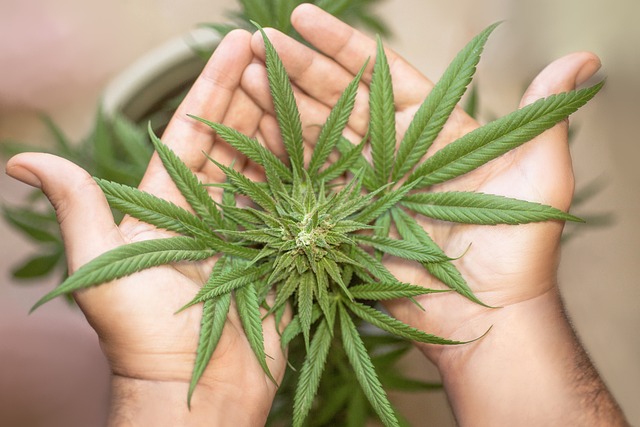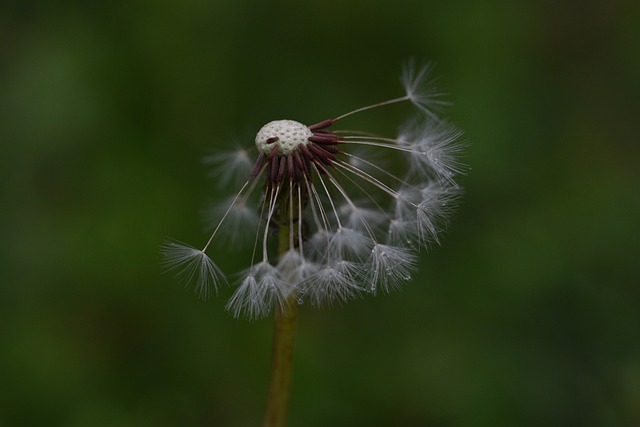The THCA flower, rich in the cannabinoid THCA, is recognized for its antioxidant properties, which are beneficial for health due to their capacity to manage oxidative stress and inflammation. Empirical evidence from lab studies confirms that THCA can protect against oxidative damage, potentially preventing diseases. Its safety profile at high doses, with low toxicity, makes it an appealing natural health supplement. Ongoing research into its therapeutic potential is expanding our understanding of how the THCA flower can contribute to wellness, particularly through its antioxidant effects. For maximizing these benefits, it's crucial to harvest THCA flowers at peak maturity with cloudy trichomes, dry them properly in low humidity and temperature conditions to prevent mold, and store them airtight away from light to preserve their antioxidant properties. Consumption can be adjusted to either maintain the antioxidant benefits or convert THCA into THC for psychoactive effects, depending on preference, with methods like raw consumption, tea-making, oil and tincture infusions below 220°F (104°C), or vaporization at lower temperatures to avoid combustion. Proper handling from harvest to consumption is key to harnessing the antioxidant properties of the THCA flower effectively.
Explore the multifaceted nature of THCA flower, a non-psychoactive compound found in cannabis plants, celebrated for its robust antioxidant properties. This article delves into the scientific intricacies that make THCA flower a health and wellness ally, offering insights into its optimal utilization. From understanding its antioxidant potential to mastering harvesting techniques, discover how this natural wonder can be harnessed for peak health benefits. Join us on this enlightening journey through the world of THCA flower and its role in promoting well-being.
- Unveiling the Antioxidant Potential of THCA Flower: A Deep Dive into Cannabis Science
- The Role of THCA Flower in Health and Wellness: Exploring Its Antioxidant Benefits
- Harvesting and Utilizing THCA Flower for Optimal Antioxidant Effects: Tips and Techniques
Unveiling the Antioxidant Potential of THCA Flower: A Deep Dive into Cannabis Science

Delta-9-tetrahydrocannabinol (THC) is well-known for its psychoactive effects, but its precursor, tetrahydrocannabinolic acid (THCA), has garnered attention for its potential therapeutic properties. The THCA flower, rich in THCA, presents a unique opportunity to explore the antioxidant potential within the cannabis plant. Recent scientific studies have highlighted that THCA possesses significant antioxidant capabilities. These properties are attributed to its interaction with the body’s endocannabinoid system, where it can modulate oxidative stress and inflammation. The flower’s ability to neutralize free radicals is a testament to the broader therapeutic applications of cannabis. This antioxidant activity is not merely theoretical; it has been observed in various in vitro studies, demonstrating THCA’s efficacy in mitigating oxidative damage that can lead to a host of diseases. The cannabinoid’s potential is further underscored by its safety profile, with research suggesting that even at high doses, THCA exhibits low toxicity. This aspect is particularly compelling for those seeking natural compounds to enhance health and well-being without the risks associated with more potent cannabinoids like THC or CBD. The exploration of THCA’s antioxidant properties continues to be a vibrant field of research, with ongoing studies expected to yield further insights into its therapeutic potential.
The Role of THCA Flower in Health and Wellness: Exploring Its Antioxidant Benefits

Delta-9-tetrahydrocannabinolic acid (THCA) is a natural compound found in the cannabis plant that has garnered attention for its potential health benefits. In its raw, unheated state, THCA exists as the acidic precursor to the psychoactive compound THC. One of the notable attributes of THCA is its robust antioxidant properties, which are gaining recognition within the health and wellness sector. Research indicates that THCA flower may help neutralize harmful free radicals in the body, thereby mitigating oxidative stress and supporting overall cellular health. This antioxidant activity is not only beneficial for promoting a state of balance and harmony within the body but also plays a critical role in preventing various diseases linked to oxidative damage.
The antioxidant properties of THCA flower are not its sole contribution to wellness. Studies suggest that this cannabinoid may offer a broad spectrum of health benefits, including anti-inflammatory effects and potential protective action against neurodegenerative diseases. Its ability to interact with the body’s endocannabinoid system could be pivotal in modulating various physiological processes, which is why THCA flower extracts are increasingly being explored as a natural means to support wellness regimens. As research continues to unfold, the potential applications and benefits of THCA flower in health and wellness are becoming more apparent, offering a promising outlook for those interested in leveraging its antioxidant properties for their well-being.
Harvesting and Utilizing THCA Flower for Optimal Antioxidant Effects: Tips and Techniques

Harvesting THCA-rich flowers at their peak maturity is a critical step in preserving their potent antioxidant properties. The optimal harvest time for THCA flower is typically when the trichomes on the buds are cloudy or milky, indicating the highest concentration of cannabinoids and terpenes, including the non-psychoactive cannabinoid tetrahydrocannabinolic acid (THCA). Once harvested, proper curing is essential to maintain the flower’s integrity. This process involves drying the flowers in a controlled environment with low humidity and temperature to prevent mold growth and preserve terpene profiles. Subsequently, the flowers should be stored in airtight containers away from direct light to slow down the degradation of THCA into THC, preserving their antioxidant properties.
Utilizing THCA flower for its antioxidant benefits can be achieved through various consumption methods. Decarboxylation is a necessary step if one wishes to activate the THC within the flower, which can then produce psychoactive effects. However, for those seeking the antioxidant properties of THCA without psychoactive influence, it’s important to consume the flower in its raw form or through methods like making tea or infusing oils and tinctures at a temperature below 220°F (104°C), which prevents the conversion of THCA into THC. These preparations can be used topically or ingested for their antioxidant effects, helping to neutralize free radicals and protect cellular health. Additionally, vaporizing THCA flower at lower temperatures can provide a more direct inhalation of its beneficial compounds without combustion, further preserving the antioxidant properties of THCA.
In conclusion, the THCA flower’s antioxidant properties have been extensively explored, revealing a promising role in health and wellness. Through careful harvesting and utilization, individuals can harness these benefits effectively. The scientific community continues to uncover the potential of THCA flowers as a natural source of antioxidants, which could pave the way for innovative health solutions. As research progresses, the understanding of how THCA flower interacts with human health will undoubtedly expand, further cementing its significance in the realm of natural wellness.
